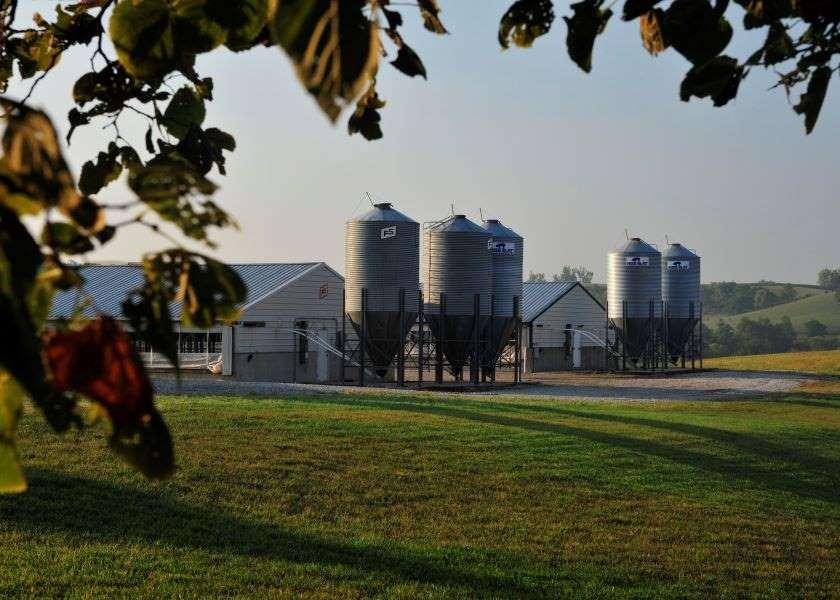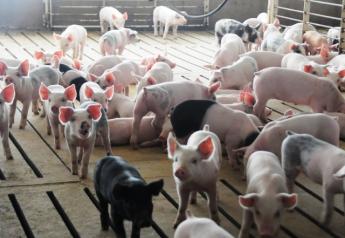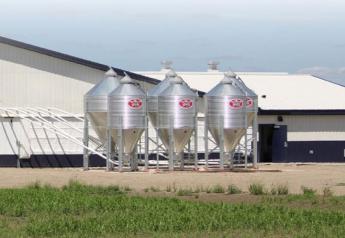A Win for All: How $155 Million in USDA Grants Could Change the Pork Industry

Pork producers have a lot to be proud of when it comes to sustainable production practices, says Ashley McDonald, NPB’s vice president of sustainability. Now it’s time to quantify it.
The National Pork Board is the lead of one and a collaborator on two grants receiving $155 million in USDA Partnerships for Climate-Smart Commodities funding. The three grants are part of the $2.8 billion awarded to 70 selected projects in the first round of funding for the program.
“Advancing U.S. Pork Sustainability and Market Value” is a $20-million grant the National Pork Board will administer over the next five years in partnership around on-farm sustainability reports. This is a current program where the National Pork Board works with Sustainable Environmental Consultants to take data from each individual operation and compile a two-page report that quantifies the environmental benefits as well as economic and social benefits of everything a pork producer does in their operation.
“This grant is really focused on that program and expanding it across the Midwest,” McDonald says. “We're focused on Minnesota, Iowa and Missouri and increasing acres and the number of pigs under this program.”
The National Pork Board’s investment of producer dollars in this program to date has helped provide producers with that report, empowering them with the quantifiable data of the good practices that they do now, she explains.
“What the federal dollars will actually allow us to do is cover the costs of any new practices that producers want to implement on their operation,” McDonald says. “Now we can help facilitate that and help cover the costs of those practices.”
This is an exciting opportunity for the U.S. pork industry, she adds.
“It’s a great story for U.S. pork,” McDonald says. “We can put practices on the ground, in a more cost-effective way, to improve our sustainability footprint. Ultimately, that's going to help us market products – both domestically and around the world. It will translate to dollars back in producer's pockets aside from the fact many of these practices simply make good business sense for the operation.”
The other two grants are similar in nature, which is trying to put climate-smart practices on the ground, as well as provide the technical assistance to do so and empowering producers with their data from their operation that they put those practices on, she says.
“Farmers for Soil Health” is a $95-million grant that’s a collaborative effort with the National Pork Board, the National Corn Growers Association, the United Soybean Board and the American Soybean Association. This grant will support a program to advance the adoption of cover crops and conservation tillage in 20 states.
“Connected Ag Climate-Smart Commodities Pilot Project” is a $40-million grant partnering with Farm Journal’s Trust in Food effort. This grant will support testing and evaluating climate-smart data in all segments of agriculture in ways that add increased value and support to producers.
“It will focus similarly on putting those climate-smart practices on the ground and quantifying the benefits,” McDonald says. “It focuses primarily on livestock and row crop integration and being able to recognize the impacts that we have going from the acres that produce the feed that we feed in our livestock systems. Being able to translate that sustainability benefit to our livestock systems is extremely important.”
With the large number of programs available, McDonald encourages producers to talk to their trade association or the National Pork Board if they have questions about the opportunities coming their way.
“We are really encouraged that USDA is investing through organizations like the National Pork Board and other commodity organizations to put those dollars in the hands of producers to ultimately quantify the beneficial practices that we all put on the landscape every day,” McDonald says.
She is most excited there's recognition that agriculture is the solution to many of the planetary issues that our world faces.
“An investment in agriculture enables producers to do more faster and go further,” McDonald says. “That recognition, frankly, is a breath of fresh air. I hope we can take that recognition and do exactly that: go further faster, quantify our benefits, put more practices on the ground.”
In the end, it’s a win for all. Producers will be able to sell more pork domestically and abroad as the sustainable protein of choice. The best part is pork producers don’t have to wait – the National Pork Board’s program is up and going to get producers started with a baseline report of their farm’s sustainability.
“It's a simple process, and Checkoff dollars have already invested in this tool,” she says. “All producers have to do is invest a little time into the data collection process. Then, they can have a baseline report that tells them all the good things that they're doing today in their operation. With these added funds from the federal government going forward, we can make sure that any practices they want to incorporate can be funded as well.”
More from Farm Journal's PORK:
Sustainability: It's More than a Buzzword in Animal Agriculture
It’s Time to Get on the Bus: National Pork Board Unveils Sustainability Goals
Pig Farmers Commit to Sustainability: Here’s the Proof







